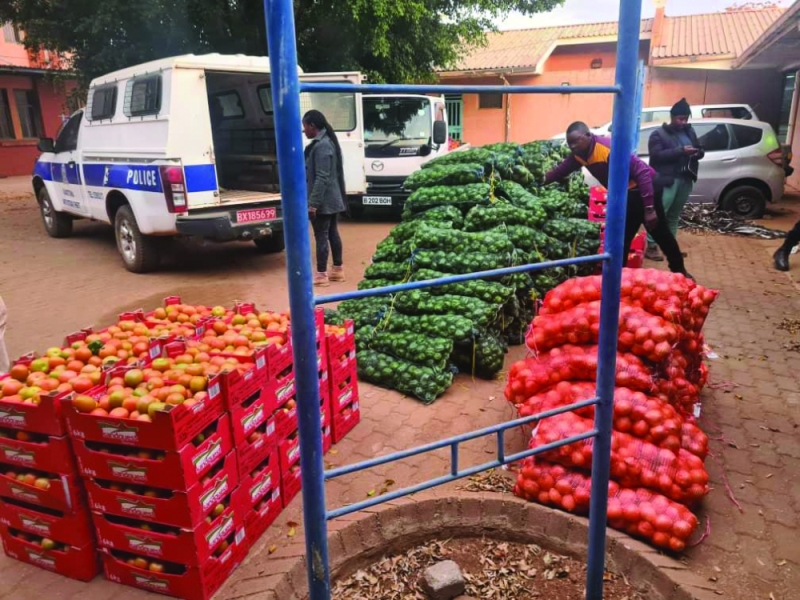Vegetable smuggling soars as horticulture ban chokes supply
Lesedi Mkhutshwa | Monday September 23, 2024 11:16


While government’s plan in implementing the ban was to stimulate local production by ring-fencing the local market for local producers, seasonal supply shortages are reportedly forcing some informal sector players to risk harsh fines and penalties to smuggle supply.
According to the Botswana Unified Revenue Service, first-time offenders who are caught smuggling vegetables worth less than P2,500 faces fines of P50,000, while second-time offenders are charged P150,000. Repeat offenders face criminal prosecution.
Consumers have been complaining about the shortage of key vegetables and rising prices. Since winter, vegetables such as tomatoes, green pepper, chillies and others have either been in short supply or of poor quality, amidst escalating prices.
In the past week, Ramotswa police arrested six suspects along the Botswana and South Africa border for illegal importation of “prohibited goods” (vegetables). The goods include boxes of tomatoes, bags of onions and green peppers with an estimated value of P40,000.
After the arrest, Mmegi spoke to the Francistown Umbrella Committee of Informal Sector chairperson, David Mbulawa who revealed that smuggling of fresh produce has grown at an alarming rate since the government imposed a ban on the importation of vegetables.
For many Batswana, the informal sector and street markets have become the “go-to” avenues for accessing vegetables, while the formal supermarkets tend to be far more expensive and have low quality items.
Mbulawa said in spite of the government's stiff penalties, many traders in the informal sector continue to smuggle vegetables. He said despite the border restrictions, local farmers are unable to meet the demand of the local market.
Additionally, he said that certain locally grown vegetables, like potatoes and green peppers, are also highly priced. As a result some informal traders choose to buy from neighbouring nations like South Africa, where the prices are more affordable.
“The recent incident in which the Ramotswa police arrested vegetable smugglers did not come as a surprise. “Just like some of the local informal traders, the offenders travelled to South Africa in order to obtain vegetables at a lower cost for profit,” he said.
Mbulawa said it is imperative that local market prices are kept under control and some form of price control could help curb the smuggling of vegetables. He added that informal sector traders must adjust their perspectives and become accustomed to the local market, in order to strengthen the local economy.
'The majority of them have grown used to purchasing goods from the South African market, where there is a higher profit margin than when they purchase from the local market,” he said.
He emphasised thae necessity of educating local farmers and informal traders on value added measures for their businesses in order to enter the local market at a fair price. Mbulawa cited a recent engagement between local informal sectors, farmers and council as the right step towards meeting the demand for vegetable supplies.
“In order for local associations to increase vegetable production in order to meet demand, they must adopt new perspectives and collaborate with nearby farmers to generate innovative ideas,” he added.
Additionally, he stated that it was sad that government initiatives such as Chema Chema, which could help businesses and boost partnerships in vegetable production, are facing resistance from some informal sector traders.
Mbulawa also said figures show that local traders in the informal sectors are not taking up the initiative as most beneficiaries are people who are more interested in starting up their businesses.
'The majority of informal sector traders use their motshelo schemes to boost their businesses instead of taking loans,' he explained.
Mbulawa, however, asserted that instead of the BURS levying huge fines for smuggling vegetables, a different mindset should be adopted to help the informal sector succeed.
There should also be a period where borders are temporarily opened for importation of vegetables, he said.
'If potatoes are finished at Pandamatenga and other places, we will engage the relevant offices through the committees so that we can be allowed to buy for a certain period of time so local can continue receiving supplies at normal prices without hiking,' he said.
